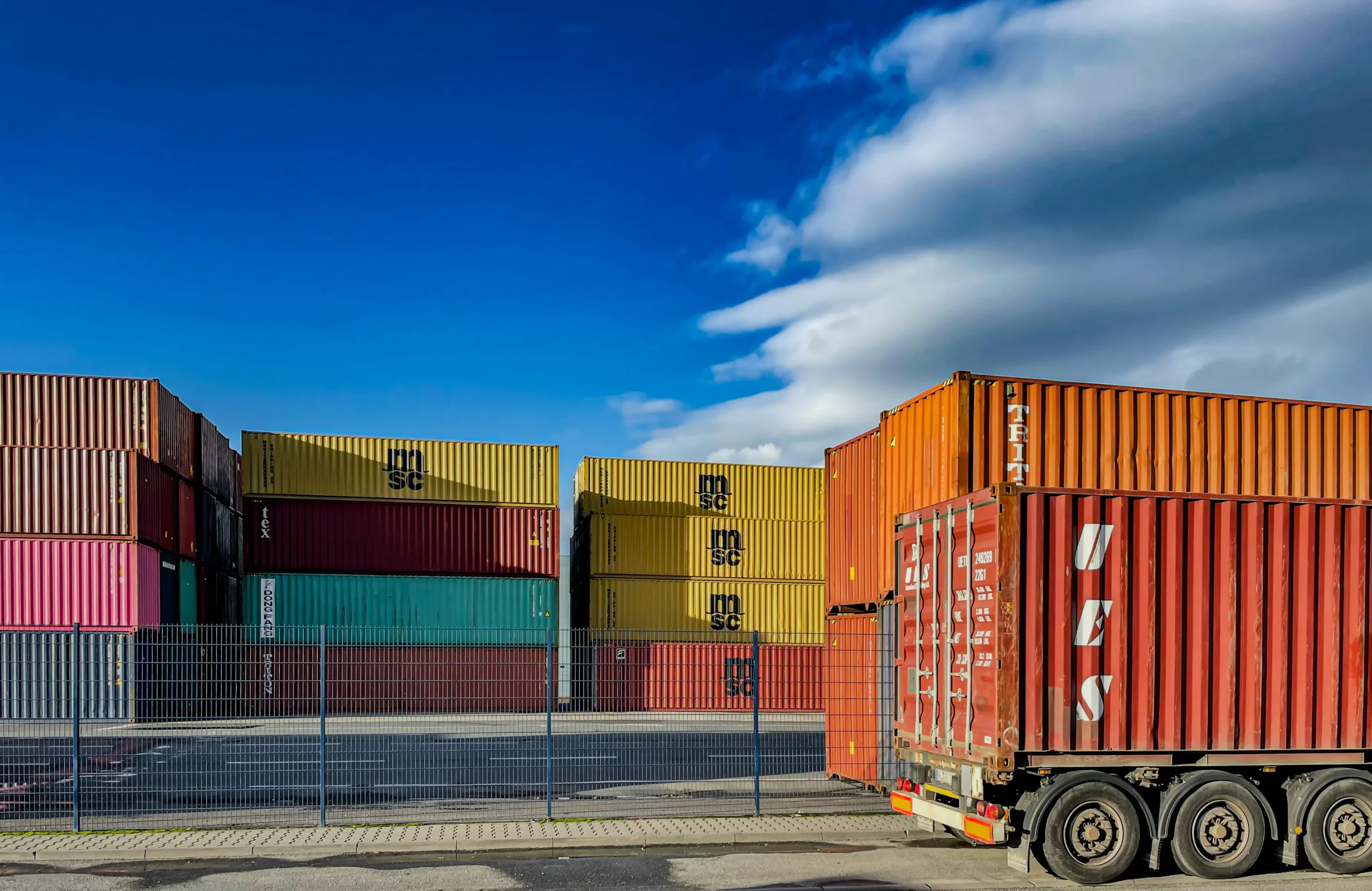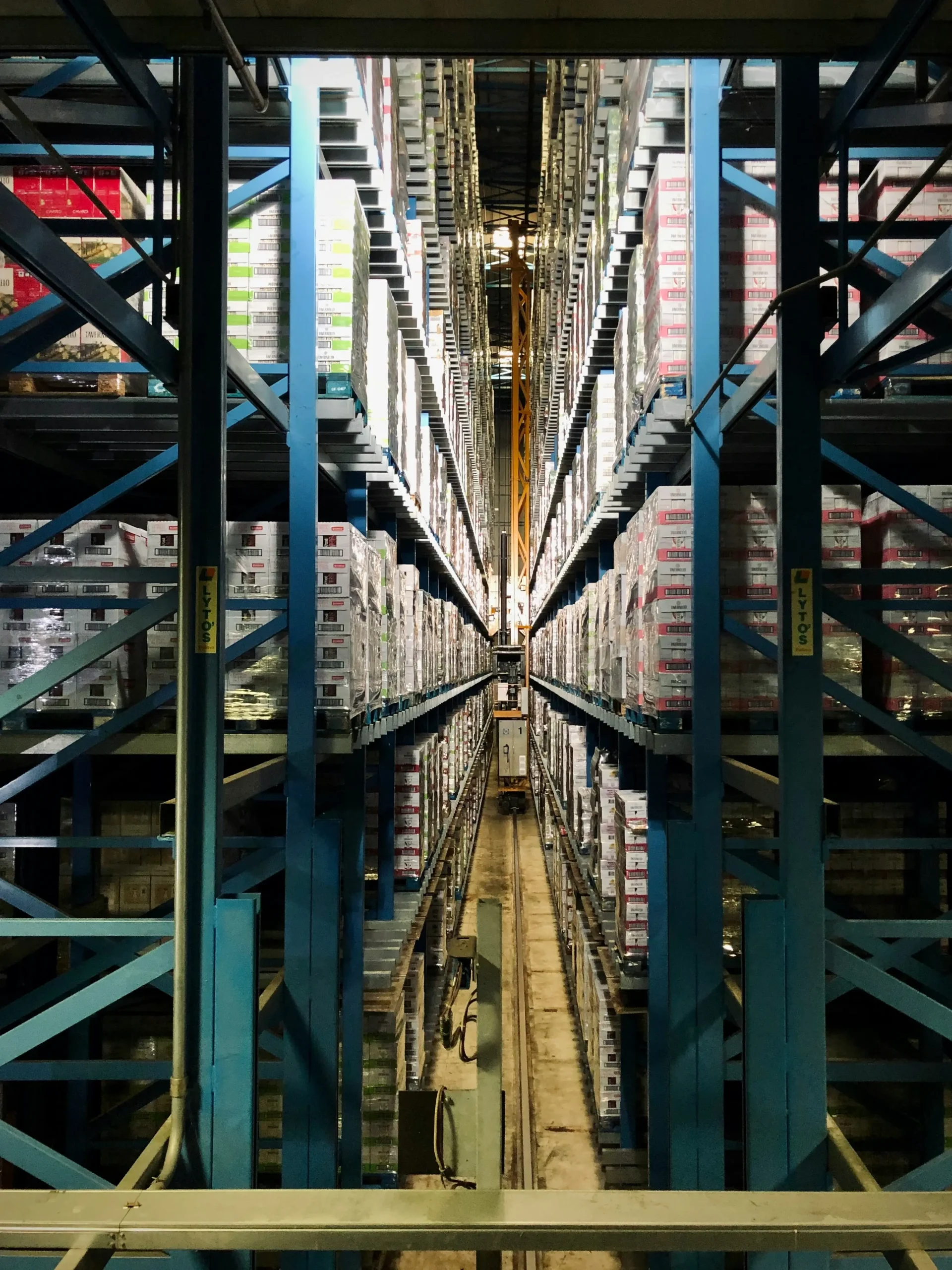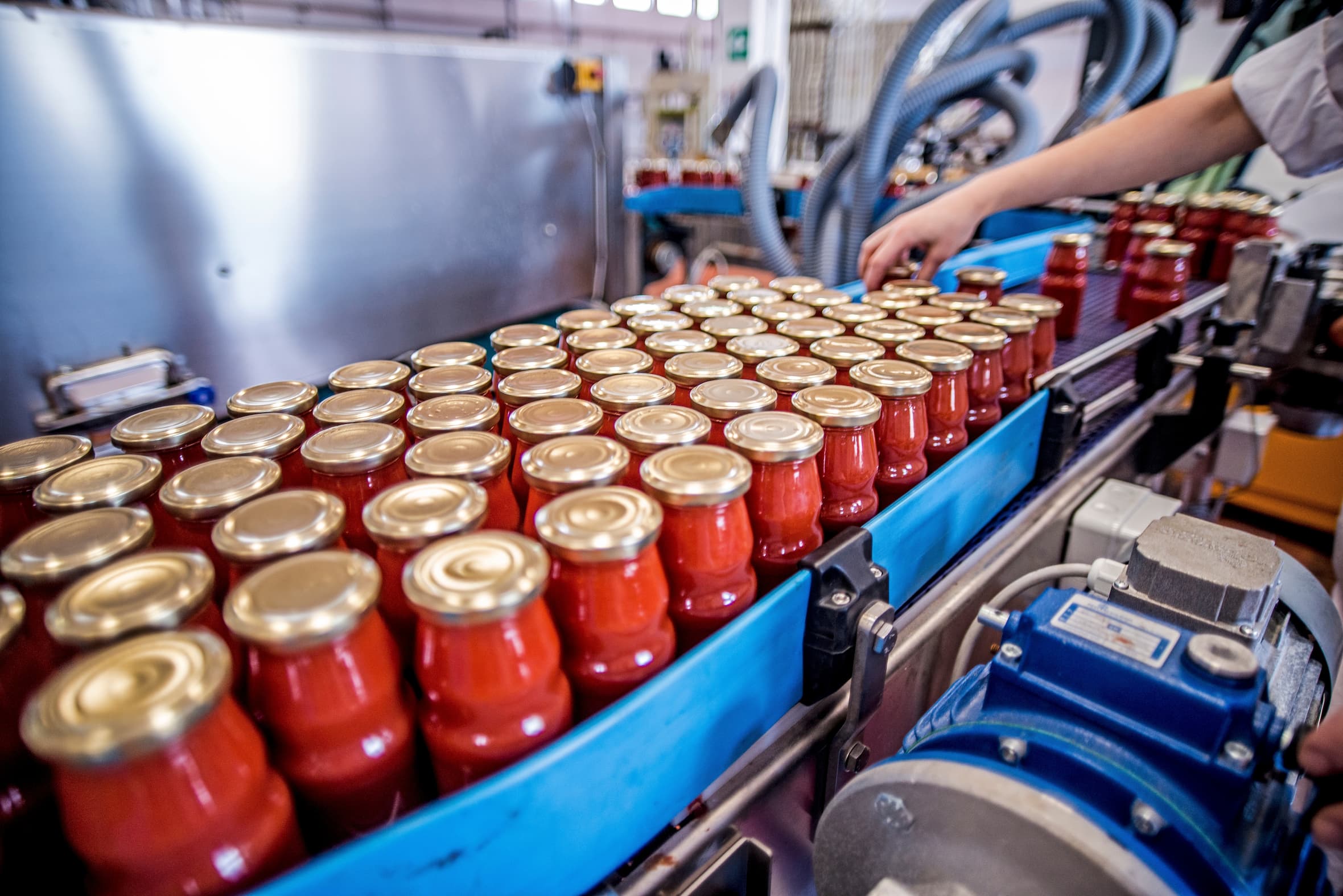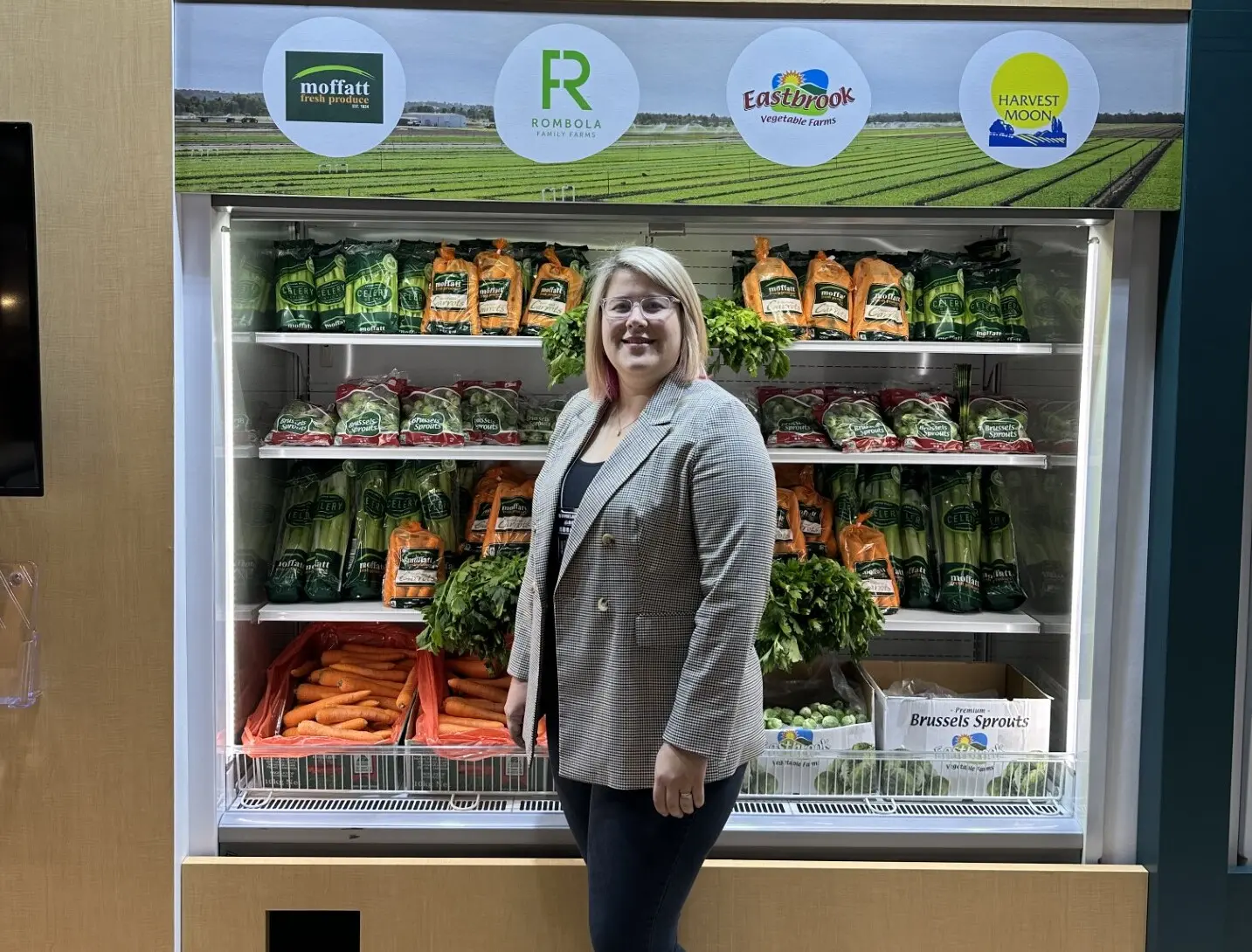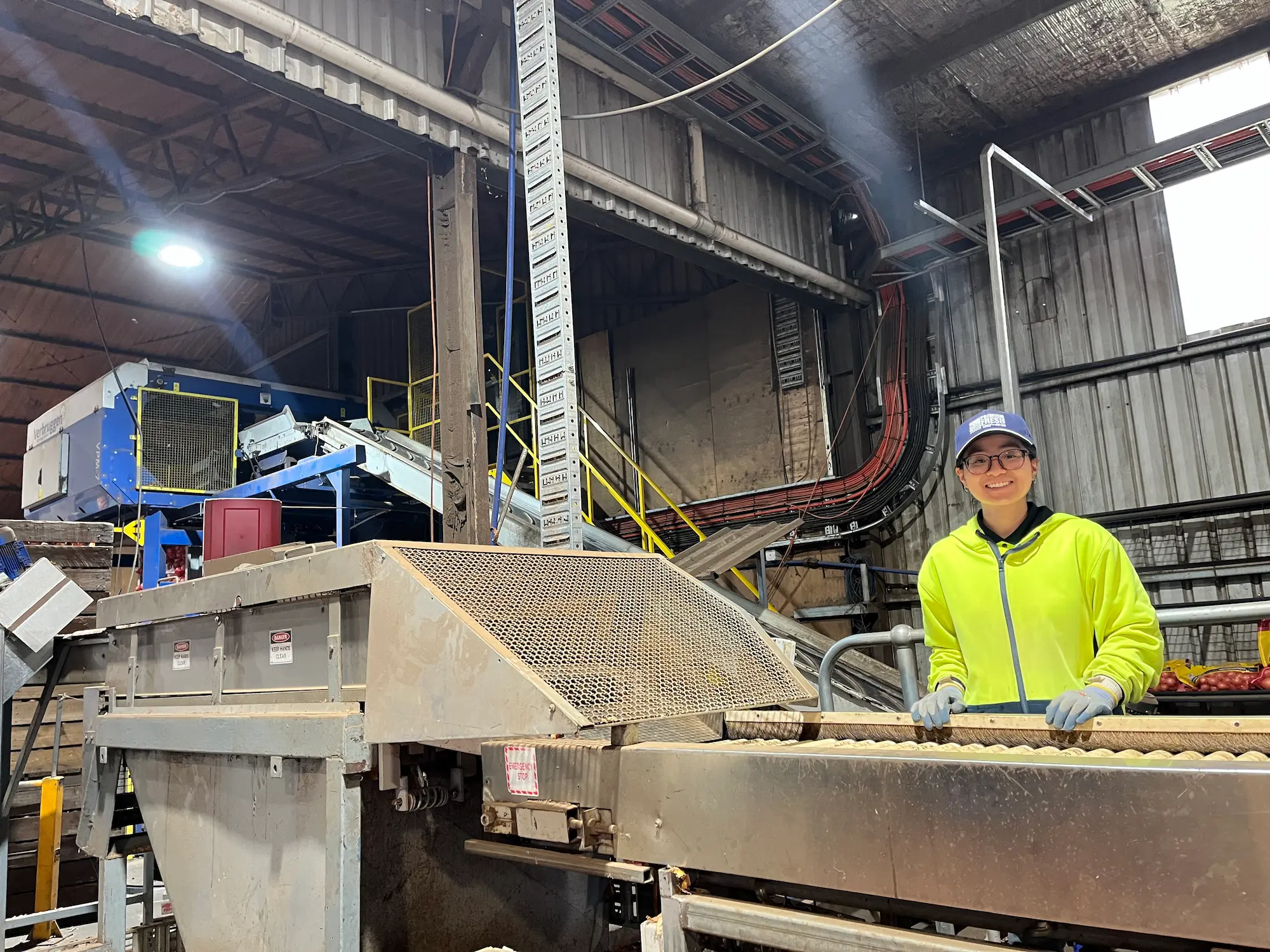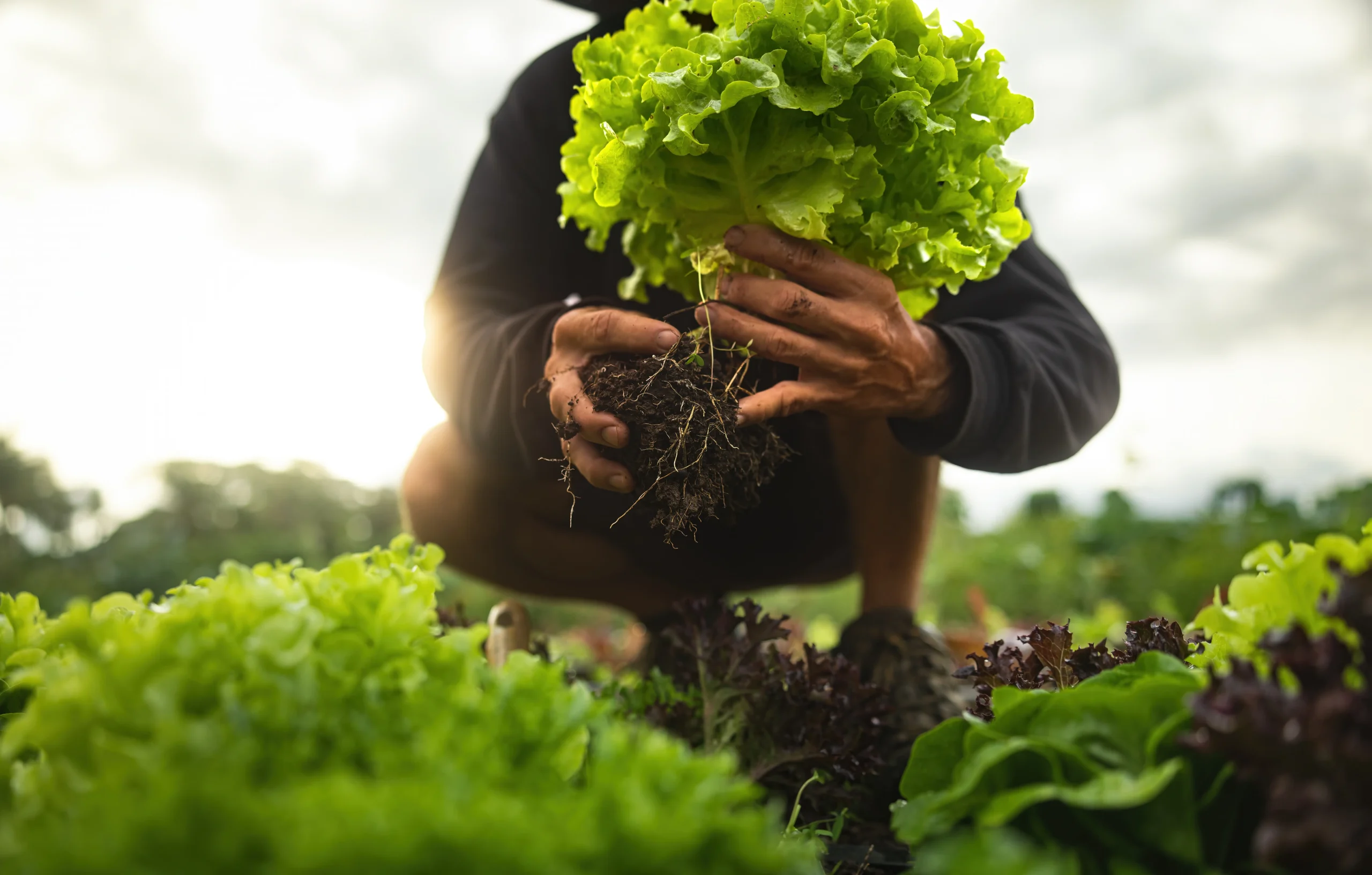The Career Pathways
Facility management involves overseeing the operations of processing or packing facilities, ensuring smooth workflow from production to storage and dispatch. Professionals in this area manage teams, maintain equipment, and ensure compliance with safety and quality standards. Processing can be simple such as washing through to high care facilities which would process value-added ready-to-eat salads, etc.
Code Roles:
- Facility Plant Manager
- Facility Supervisor
Facility Supervisor, Red Gem Potatoes, VIC
Jordon Kleesh
"We are very lucky to have been the first company to utilise x-ray vision technology to help us with sizing and grading our brushed potatoes. With this, we have achieved a quality no one else can do in the industry!"
What is your role at Red Gem Potatoes and what does it involve?
At Red Gem, we grow brown onions and several potato varieties including Kipfler, Nicola, Mozart, Royal Blue and Crème Royale. In addition, we manage many farms to help support our volumes to our customers, which are very important to this business – from our biggest customers such as Coles & Hello Fresh to smaller ones located locally and interstate. I work on the packing side of the business. After we receive the freshly harvested potatoes into our packhouse, we prepare and package them, so they are ready to be sent out to our customers quite quickly – they are in and out on the same day if necessary. In our packing shed, we have two different potato lines: the brush line and the wash line. Washed potatoes must go through a washing plant before they come through the lines to get packaged. It’s a simple process but at the same time, there's a lot behind it that you've got to do to get it right.
What does a typical day look like for you?
My day typically starts with a production team meeting early in the morning to outline and organise what the goal is to achieve for that day. This involves determining what our orders are for that day and the day after and making sure we have got enough product coming in for us to package and send out. From there, we set up the lines where we prepare the pallets and unload the potatoes from the truck. Once the team arrives, we begin packaging. It is important to keep track of timelines, pallet movement, people movement and make sure the lines are operating correctly and not overflowing. My day also involves looking at quality assurance, where I check the product to ensure it meets the customer’s specifications and requirements. To do this, I pick up a bag off the production line and check if they have any internal defects and are the correct weight.
How did your journey into horticulture begin?
When I was 16, I began working at Red Gem as a casual employee where I would fold crates and help with packing and other general factory duties. After a year, I left to try something else. While I was at school, I was studying sports science and then I came back to work at Red Gem for a year and a half where I did inventory, quality assurance and more general factory duties and light forklift duties. From there, I left to do my carpentry apprenticeship that I had finished just as the COVID-19 pandemic started. The COVID situation impacted my carpentry career, but luckily enough – as a result from my prior work experiences at Red Gem – I was able to find work again with the team doing casual forklift driving. What began as casual work ended up being full-time work again, and I found the opportunity to progress through the business to where I am today.
What are some common misconceptions about careers in horticulture?
There is a whole lot more to horticulture and a lot of people don’t realise that until they actually start working in it. About four months into working at Red Gem again, I had the opportunity to visit the Hillston farm in New South Wales, where I saw and learnt the entire process of planting. This included the overall groundwork that prepares a crop before planting, such as soil conditioning. It was witnessing the planting process and the factory side of things – which are not as simple as people would think – that ignited my interest in horticulture. The whole process is not just as simple as putting a potato into a bag. We have got so much to organise such as inventory, quality control, the factory side of things, logistics and forklifts – plus the various office roles for the business side of things.
If you’re prepared to learn, are there numerous opportunities to grow your career in horticulture?
Another common misconception about working in the industry is that there is only seasonal work, which is not the case. There are plenty of packing sheds that operate all year round because the potatoes come in from numerous different places around Australia and not every farm does harvest at the same time. The potato industry is always growing and harvesting, and there’s always work.
Why do you do what you do?
I love my job as every day is different. One day I could be working on the factory floor or in sales or be up at the farm for a week helping that team, to then come back to the packing shed. If you’ve got the dedication to the industry, I find it tends to give back to you because employers notice and reward effort. From my experience, it’s never too late to get into horticulture. I’m 25 and although I was in and out of the industry at the start, I’m glad I returned. It’s also a good feeling to see the product you’re producing end up on somebody else’s plate. Overall, working for a company with a great heritage gives me the comfort and belief that we can achieve great things every day.
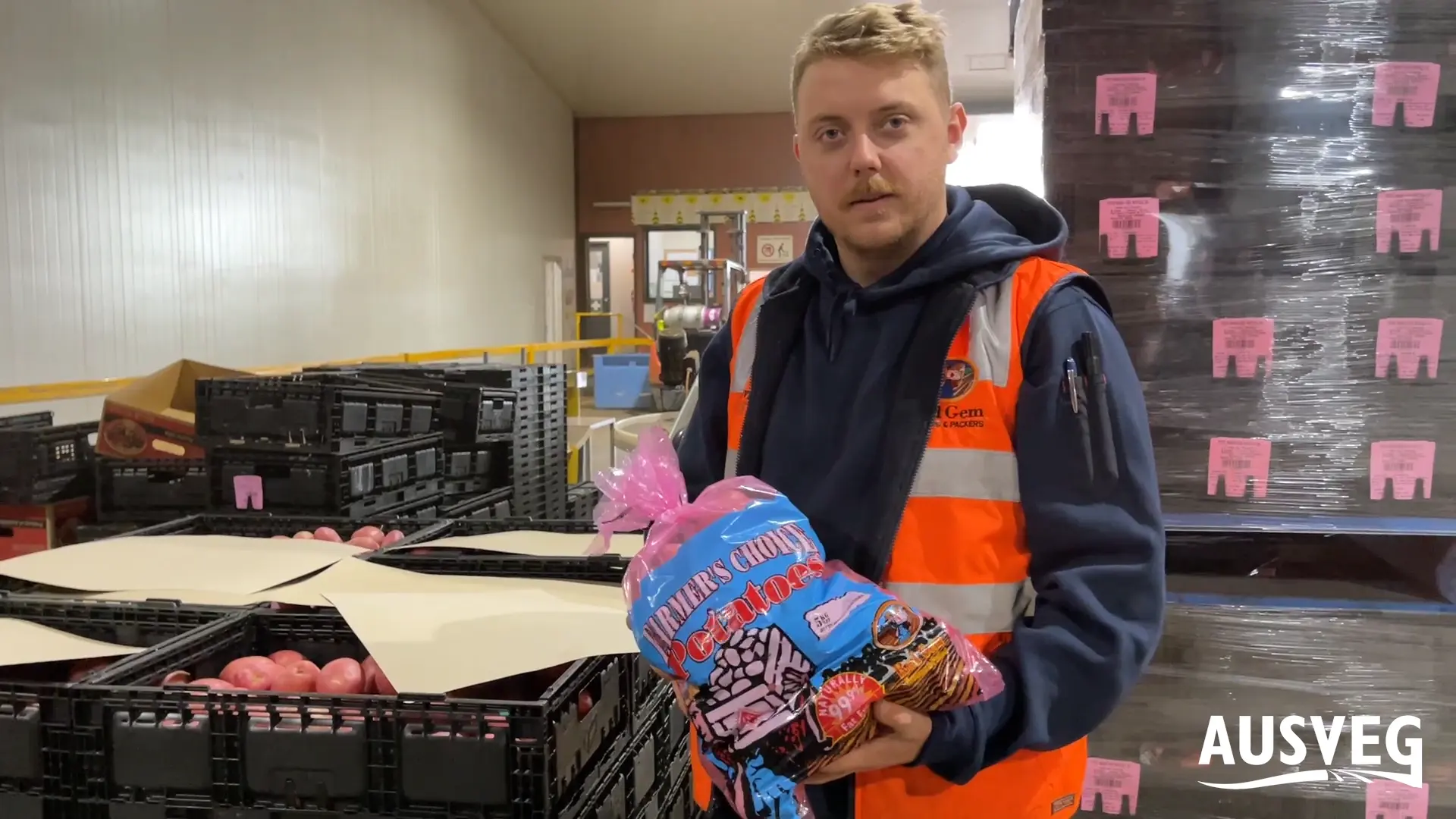
You might also like

